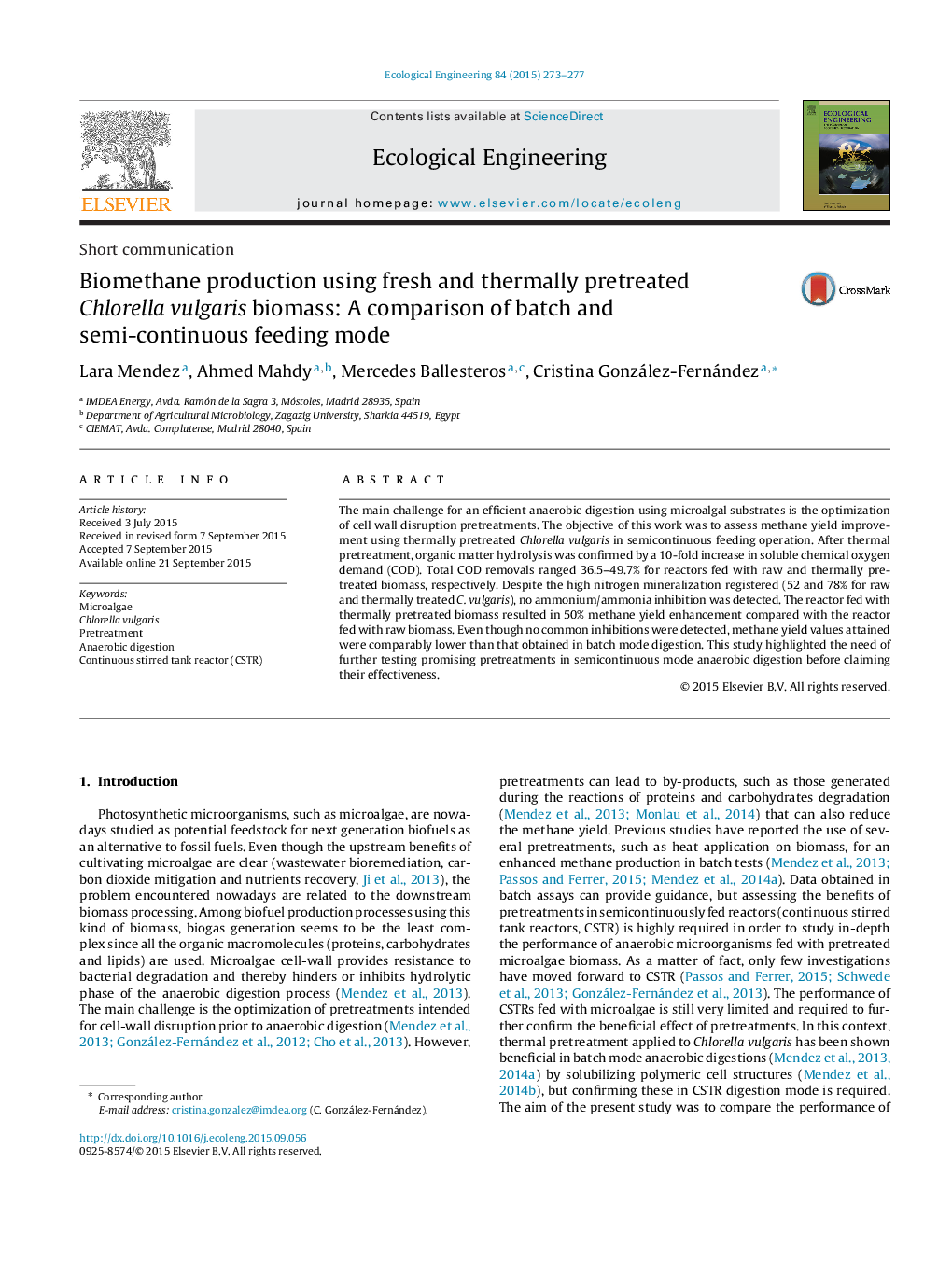| Article ID | Journal | Published Year | Pages | File Type |
|---|---|---|---|---|
| 4388792 | Ecological Engineering | 2015 | 5 Pages |
•Thermal pretreatment was proven beneficial for Chlorella vulgaris anaerobic digestibility.•CSTR fed with pretreated biomass resulted in 50% methane yield enhancement.•Despite the high nitrogen mineralization, no ammonium/ammonia inhibition was detected.•Semicontinuous digestion resulted in lower methane yields than observed in batch mode.
The main challenge for an efficient anaerobic digestion using microalgal substrates is the optimization of cell wall disruption pretreatments. The objective of this work was to assess methane yield improvement using thermally pretreated Chlorella vulgaris in semicontinuous feeding operation. After thermal pretreatment, organic matter hydrolysis was confirmed by a 10-fold increase in soluble chemical oxygen demand (COD). Total COD removals ranged 36.5–49.7% for reactors fed with raw and thermally pretreated biomass, respectively. Despite the high nitrogen mineralization registered (52 and 78% for raw and thermally treated C. vulgaris), no ammonium/ammonia inhibition was detected. The reactor fed with thermally pretreated biomass resulted in 50% methane yield enhancement compared with the reactor fed with raw biomass. Even though no common inhibitions were detected, methane yield values attained were comparably lower than that obtained in batch mode digestion. This study highlighted the need of further testing promising pretreatments in semicontinuous mode anaerobic digestion before claiming their effectiveness.
